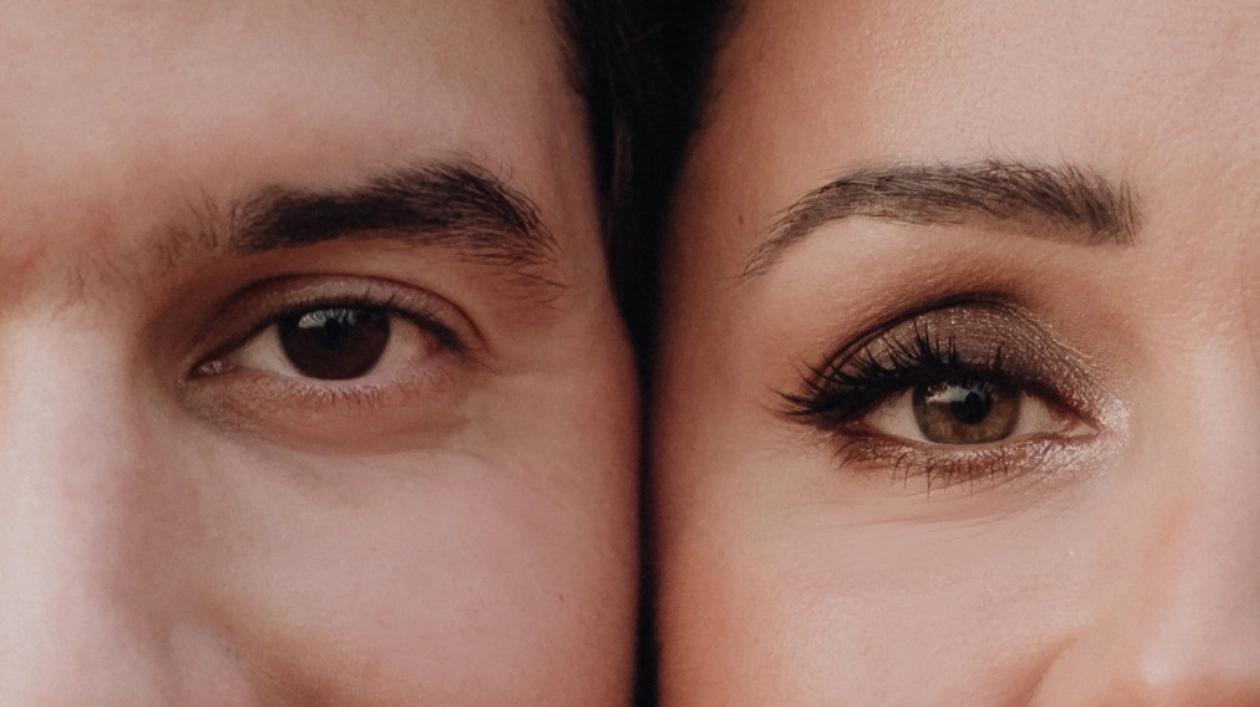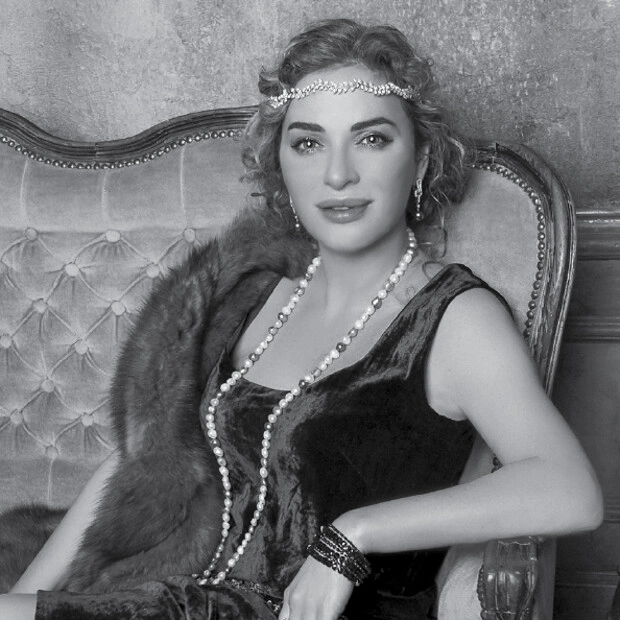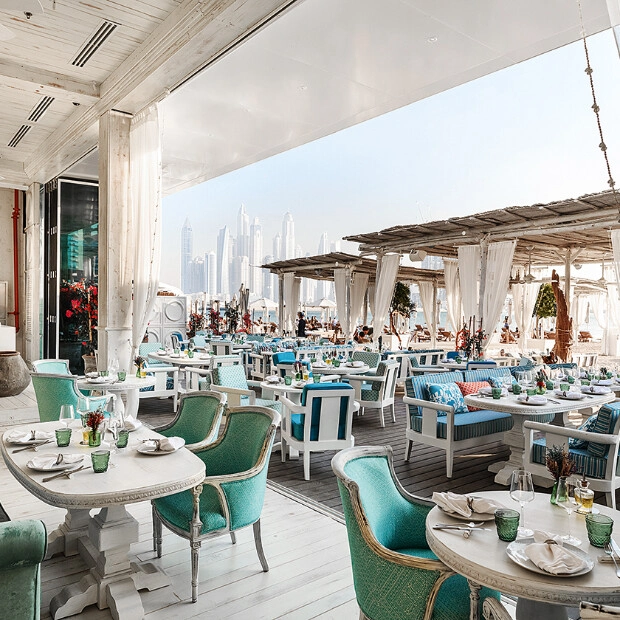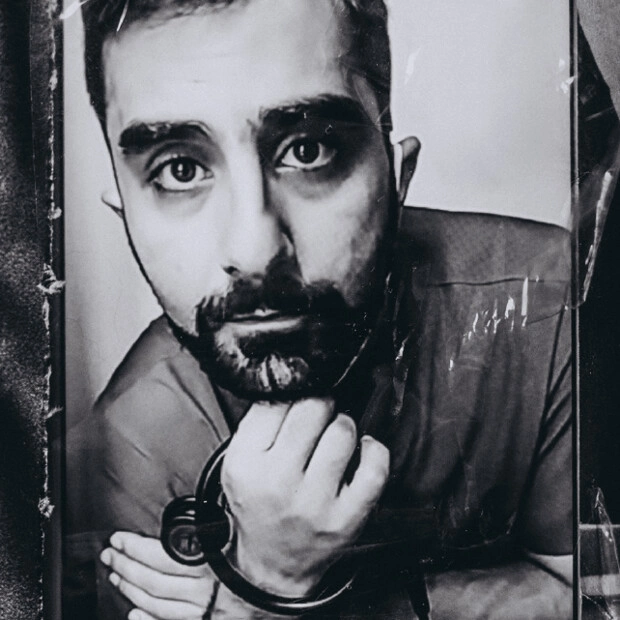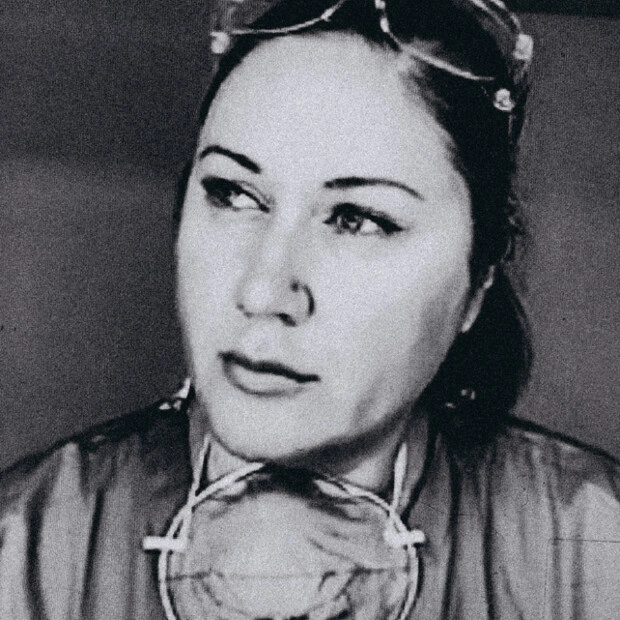On the Road to Perfection
In the frantic rhythm of the megacity, which is constantly rushing somewhere, you want to find a place where you can relax, surround yourself with attention, and be confident that you will be taken care of. The owners of the Regale Innovation Polyclinic network in Dubai — the internationally recognised dentist Lilia Kuzmenkova and the serial entrepreneur Boris Schleyfer — have created a clinic in the UAE that guarantees patients peace of mind about their health and future. Regale is a lifeline for those who value the combination of comfort and professionalism.
Lilia: This summer, Regale officially turned 5 years old, but in fact, we have existed for two years longer. It all started with a small clinic where our team worked without a name. We took a long time choosing a brand name — one that would embody us and not be a clichéd "dental" option. At some point, I read about the Regale lily — a noble, regal flower that symbolises purity and beauty. Everything fell into place — and we immediately obtained the trademark.
Today, Regale is a big brand. We are not just a clinic, but an international network of innovative centres for dentistry and general medicine in Moscow and Dubai. Our clinic in the UAE opened this spring. Boris became a partner in the project just as we were taking our first steps in Dubai.
Boris: Lilia and I met in the winter when we started collaborating on another project. We quickly felt that we were on the same page in terms of worldview, strategy, and all aspects of running a business — we are both perfectionists. I found someone who thinks the same way I do: structurally and professionally.
When we realised that we were on the same path, I became a partner in Regale in the UAE. Building a business in Dubai is both a challenge and a tremendous opportunity for growth. The future today lies in the Middle East. Over the past 10 years, Dubai has undergone a radical transformation and continues to move forward. And we are part of this development because we are used to working at the highest level.
Lilia: I have a tradition: wherever I find myself, I always visit local clinics to assess the level of dentistry and medicine in the country. Even before the opening of Regale Polyclinic in the UAE, I had been here many times and concluded that, unfortunately, the quality of dentistry and general medicine in Dubai is very poor. There are competent doctors, but as in any country, at best, they make up 5% of the total mass; all the rest are average or have little understanding. So why are they working and treating people?
Often, clinics are opened by investors who have nothing to do with medicine. They are not doctors; they have neither knowledge in this area nor experience. Investors, as a rule, invite a manager to work and do not delve into anything themselves. As a result, patients suffer from a lack of professionalism.
We have many such patients flying to us in Moscow from different countries who have been burned by incompetent treatment. I love Dubai very much and realised that here, too, we can open Regale not only as a dental clinic but also as a multidisciplinary centre for general medicine; to organise a place where the best experienced professionals will be gathered, who know how to create an atmosphere of trust and care for the patient.
Boris: To date, we have already built a team of top-notch specialists whom we fully trust. I myself have visited both our doctors and other clinics in Dubai to compare approaches in their work.
It seems to me that Russian business, in principle, has different standards: we have more requirements for ourselves and a completely different quality bar. And here, many simply do not know what service can be like. For example, in many places, administrators can take all day to respond to you and miss important details in the process — whereas our treatment coordinator is required to provide detailed feedback within five minutes.
For us, every patient is the most important person in the clinic. I am almost always present at the centre and try to communicate with everyone, ask questions, and get feedback. I'll say more: I know every patient by name.
We have strict rules for the entire team. We conduct training sessions during which we look at the clinic through the eyes of patients and constantly improve our service. There was a case when we spent a long time painstakingly teaching a treatment coordinator, but it did not help; it was as if he did not hear us: he incorrectly informed patients, regularly arrived late for work, and did not show proper attention to the patient. We do not keep such people and immediately say goodbye. It is important for us that each team member participates in creating comfort and shows care for patients.
Lilia: When we started building the treatment process, we made a clear decision: we will have the highest quality, the best equipment in the world, and leading specialists.
Each doctor goes through a five-stage selection process, unique in its kind. First, the CVs and portfolios are evaluated; out of a hundred candidates, only two or three are selected. But this is just the beginning of the journey.
The next stage is an interview with our profiling doctor. If the candidate receives approval, an interview with the manager awaits them to assess their fit with the team. Sometimes, interviews are conducted jointly to assess the reaction to stress, sociability, and general qualities.
If these stages are successfully passed, testing begins. The doctor is assigned a patient, usually from among the assistants, whose treatment is carried out free of charge. The entire process is evaluated: from taking a medical history to choosing a treatment strategy. After that, I already have the full picture, and we personally communicate with the doctor to get to know them as a person, assess their professionalism, thinking, and level of empathy. Only then is a decision made about cooperation, and the specialist finally becomes part of the team after a probationary period. In Dubai, this period is six months.
We started the development of Regale in the Emirates with dentistry because everything is well-established there and absolutely clear to me. I have vast experience in this, recognised at the world level: in 2022, I received the "Businesswomen of Russia" award from the international consulting company Ernst & Young.
General medicine is not as native to me, but it is also an area I understand, as I worked in a hospital and trained in this field. In our view, a polyclinic should provide a full range of quality treatment, from detailed consultations and diagnostics to tests and drips. The ideal is when the patient receives everything they need in one place.
We are gathering specialists from different fields at Regale: a gynaecologist, endocrinologist, cardiologist, gastroenterologist, ENT specialist, cosmetologist, dermatologist, and other specialised doctors. This creates a closed circle of quality treatment. And we understand that in order to build such a system, we need to attract serious experts in these areas to participate in the selection of doctors for Regale.
Boris: For example, now we need to purchase an ultrasound machine for an endocrinologist and a gynaecologist. How do we do this? We fully immerse ourselves in the topic and consult with manufacturers and leading specialists from Russia in this field.
Lilia: These are serious specialists who have been personally verified by me; I myself go to them for check-ups in Russia. They have extensive work experience, are known in the medical world, train other specialists, speak at international conferences, work in top clinics, and carry weight in Russia. I ask them to join us, and they are happy to help us, including in the search for those very 5% of excellent specialists that exist in Dubai.
Boris: When opening the clinic with the first manager, we had a completely international team. But when we started working and saw all the details firsthand, we realised that a lot needed to be changed. We had to correct many shortcomings. We changed the software, developed job descriptions, signed contracts with laboratories for conducting tests, and completely reassembled the team. At the moment, 90% of our doctors are from Russian-speaking countries.
Lilia: The mentality of employees from different countries varies greatly. And you understand this as soon as you start interacting with a person. They may be a good doctor but not at all patient oriented. For example, a patient has a tooth extracted — and the doctor did it well, but did not warn about some aspects of rehabilitation. They don't care what happens next. But rehabilitation is very important. It is critically important to convey information to the patient about how to proceed. If swelling, a bruise, and a fever are possible after tooth extraction, we must always warn about this so that the person is prepared for it. It is important to us how a specialist builds their communication with patients, how they treat them, and how involved they are in all the intricacies of the process.
I completed two residencies, defended my PhD in paediatric maxillofacial surgery on a topic of global significance. I studied for a year in Austria at the Institute of Gnathology with Professor Slavicek, as well as in Germany, Switzerland, America, Israel, and Italy. Dentistry is my life's work, but I realised long ago that for a true specialist, it is important to possess not only specialised knowledge.
For example, before defending my dissertation, I took public speaking courses to speak confidently from the podium and competently convey information. To better understand aesthetic dental restoration and see the process from an artistic perspective, in addition to dental training, I completed drawing courses. And when patients began to frequently ask similar questions about dental health, I started a blog on Instagram and began speaking at conferences. I am often invited for interviews by federal media and various reputable magazines, where I promote competent dentistry. To be the best, you need to go beyond the ordinary and exceed expectations. This approach works in everything. And it is precisely this that has become the benchmark for our work standards at Regale.
Boris: When it comes to service, for example, we have compiled a drinks menu specifically for Regale. We have French Kusmi tea blends, English Fentiman's lemonades, and Italian Surgiva sparkling mineral water. We have excellent coffee, with alternative milk available. And all of this is free for every patient. That is, a person comes in, looks at the menu as if in a restaurant, and chooses what they want.
In addition, we have made a collaboration with the Bingyol's gallery, and now the clinic walls are adorned with works by world-renowned artists. You are not just staring at the ceiling while waiting for your appointment, you are enjoying fine art too.
Already now, we are receiving reviews that are the best proof that we are on the right track. Patients are not afraid here; on the contrary, they all leave saying how sensitively, attentively, and warmly they are treated. Many patients mention how well-coordinated the entire team works, from doctors to coordinators. All of this is created through hard work and a clear system of protocols. For medicine, this is vitally necessary: every step requires attention and responsibility.
Lilia: Each employee is responsible for their actions. For example, if an assistant has broken an expensive instrument through their carelessness or has violated instructions, they are held accountable for it.
In addition, no doctor will ever bill a patient more or less than they should. The bill will always be exactly what it should be, regardless of who came for treatment. My smile is entirely from Regale, but even when I get treated at our clinic, I pay for my treatment in full.
There was a case when an excellent doctor with great manual skills increased a patient's bill. The patient did not notice anything, but we did — and we returned the money to the patient. One warning, a second — and the doctor was fired.
For me, the reputation of Regale is equal to my own, and when someone casts a shadow on it, I am not willing to put up with it.
Boris: At the same time, a practice has developed in Dubai where employee rights are protected by law much more than employer rights. Because of this, it is sometimes very difficult: you invest in people, train them, accept them into your team, but if they do not cope, you often cannot simply fire them.
More precisely, you can fire them, but people start filing complaints. Each complaint is considered, and we have to spend legal resources to protect our interests. Almost all the cases we have had here when we changed the team ended in our favour, but it takes a lot of energy. Often, such complaints are driven by resentment, which makes the process even more tiring and energy consuming.
For example, not so long ago, we parted ways with a nurse who showed herself to be unprofessional and violated one of the key protocols. We are not ready to risk the health of patients, so in such cases, we immediately suspend the person from work. But what does the employee do? They filed a complaint against us because we fired them in one day and they want to get two more months' salary from us.
We took this case to the local Department of Health (DHA), and they told us that this was the first case in the history of the United Arab Emirates where a company itself complained about an employee.
Lilia: Another peculiarity of Dubai is the very complex system of approvals when choosing a location and during construction. We wanted to provide anaesthesia right in the clinic, as we do in Moscow. But they did not approve it for us because, according to local laws, anaesthesia can only be done in a hospital. Now we have a contract with a hospital where, if necessary, we treat our patients.
There was a wonderful villa with a great landlord and a favourable price. We had already paid the money, but the regional authority wrote that a medical institution could not be opened there. After a long search, we found another suitable place.
Boris: Fortunately, all these difficulties are now behind us. And now we can already think about long-term goals. In the autumn, we plan to reach full staffing and move on to strategic development: events, announcements, collaborations with corporations. One of the tasks is to bring benefits to the B2B sphere. Soon we will have new interesting projects that, in my opinion, will radically overturn the idea of what a medical centre is. And since we see prospects not only in Dubai but in the entire Middle East in general, Lilia and I have plans to expand within the UAE and open Regale in another country in the region.
